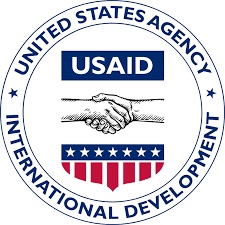
The Momentum Safe Surgery in Family Planning and Obstetrics project funded by the United States Agency for International Development, says the project implemented between 2021 to 2024 across Bauchi, Ebonyi, Kebbi, Sokoto, and the Federal Capital Territory reached over 1,566 Vesicovaginal Fistula patients.
USAID also said that the project trained over 350 health workers across 48 hospitals to manage fistula care, resulting in 81% of fistula surgeries.
The Director of Health Population and Nutrition, USAID Mission in Nigeria, Suegatha Kai Rennie, gave the statistics during a National Project Dissemination meeting held in Abuja, on Tuesday.
Rennie noted that the project “improved access and use of evidence-based, quality maternal, newborn and child health in the five supported states, through a model that will ensure long-lasting impact.
“Throughout the project, more than 350 health workers across 48 hospitals were trained in multi-disciplinary approaches to fistula care, benefiting over 1,566 fistula clients. The success rate of fistula surgeries reached 81%, and the number of clients receiving rehabilitative and reintegration care doubled.
“In addition, the project trained over 60 health workers on managing FGM/C complications, expanding access to care for affected women and girls. Social and Behaviour Change (SBC) activities reached over 1.2 million people with crucial messages on fistula, FGM/C, and safe surgery.”
“The project focused on increasing the capacity of Nigerian institutions and local organizations to deliver high-quality prevention and treatment of fistula, prevent Female Genital Mutilation and Cutting, and mitigate adverse obstetric impacts among women who have experienced FGM/C”, she added.
USAID also commended the Ministry of Health for raising the visibility of fistula in the country through the setup of the Fistula subcommittee of the National Reproductive Health Technical Working Group.
“Other notable achievements include the co-funding of sensitization programs for fistula desk officers nationwide, the development of a comprehensive fistula and cesarean section dashboard on the national Health Management Information System (HMIS), and the piloting of a fistula patient tracker to ensure comprehensive care for women.
“These interventions have provided valuable insights into the drivers of fistula and established a strong foundation for allocating more resources to eliminate fistula and ensure safe childbirth for all women in Nigeria”, the statement added.





